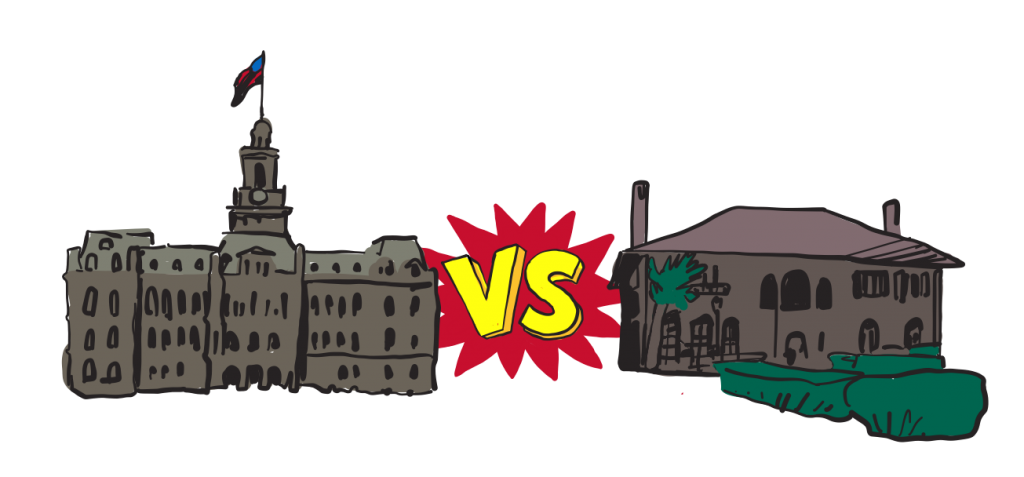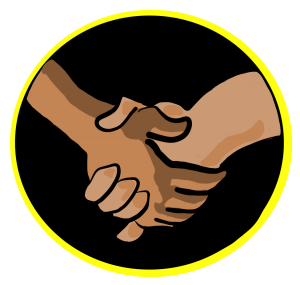Introduction


After considering our vision for our community, taking the time to develop our expertise on the issues, and becoming familiar with other entities that influence government, we’re ready to build support. In this lesson we’ll explore identifying allies who might support our work within our neighborhoods.
Why Does this Matter
We know that Detroit’s government officials—those who are elected and those who work for the government—are responsible for representing us and delivering services. However, there are also opportunities to work with those individuals on the issues that we care about. We can build support among them and other members in our communities to accomplish our neighborhood goals. Just like with officials within government and their various interconnected networks, working together often means that tasks, goals, and other priorities are met because of effective collaborative efforts.
Connecting the Dots
Merriam-Webster’s Dictionary defines an ally as: a person that provides assistance and support in an ongoing effort, activity, or struggle. When you find an ally, you have the opportunity to form an alliance which you can grow, adding more and more allies working toward the same cause.
While you may not typically think necessarily about your contacts working within the city government, district manager, or your elected officials and their staff as forming an alliance with you –– as a citizen of Detroit not only are they responsible to you and your needs, you are, in fact, aligned with a common interest: the health, advancement, and well-being of the City of Detroit, including your neighborhood.
The two direct points of contact for your city government are your district City Council person (and staff) and your District Manager.
Remember the different branches of government in Detroit:


If your goal is to have better city services, then both your District Manager and City Council representative can work with departments or get you to the right person to get a city action from a Department.
If your goal is to pass an ordinance and get city code changed then your district City Councilperson or one of the at-large City Councilpersons can be your ally in this effort of passing law (see Changing Local Policies).
Civic Allies
Individuals working within our government are important allies to identify especially when seeking to change public policy. These individuals either create policy, work closely with those who create policy, and/or are on the front lines implementing policy. Therefore they are the most familiar with policy and the most poised to support (as well as help refine) recommended changes.
Elected Officials
Let’s look at the kind of people in government that you may interact with. They have different powers and ability to help.
Leaders of Detroit government elected by the citizens include City Council, City Clerk, and Mayor. Elections are conducted every four years and local elections occur during odd numbered years such as 2021, 2025, and so on. Judges of the 36th District Court are elected on staggered years for terms of six years, coinciding with State and National elections which occur on even numbered years such as 2020, 2022, and so on. Elected Officials or ‘law makers’ in Detroit are non-partisan and are the people you can vote into –– or out of –– office.
While your locally elected leaders can certainly be allies, don’t forget that Detroit’s government also has to work with Wayne County’s government, Michigan’s government, and the United States government. So, elected officials who represent you at those levels can also be good allies with influence on local government.
Boards and Commissions
In Responsibilities we discussed how Boards and Commissions are connected to the responsibilities of Detroit’s government. Members of those groups could also be allies. Boards and Commissions are groups of local residents appointed to volunteer (with the exception of the Board of Police Commissioners which has elected and appointed members) to support city government functions. There are decision making boards/commissions and there are advisory boards/commissions. Both types make recommendations to city officials and hear from the public. Decision making boards/commissions, such as the Board of Zoning Appeals, are able to make decisions about government action. Click here for a full list of the 21 boards and commissions and their responsibilities.
Appointed Officials
Leaders of city departments, mayoral advisors, and members of boards are all government officials appointed by elected leaders, most notably, the Mayor and City Council.
Click here to see the Mayor’s administration organizational chart for their key advisors.
| MAYOR APPOINTS | MAYOR APPOINTS subject to council’s 30 days approval | COUNCIL APPOINTS |
|---|---|---|
|
|
|
Physician Mona Hanna-Attisha
In 2015, Physician Mona Hanna-Attisha, gained key allies with her powerful data and research on elevated lead levels in Flint’s children. She was able to assemble three formidable allies:
- Greater Flint Health Coalition CEO Kirk Smith
- Senate Minority Leader Jim Ananich (D-Flint)
- Dr. Lawrence Reynolds, a Flint pediatrician and member of Gov. Snyder’s task force on Flint water crisis
The support of these allies helped her meet with Flint’s Mayor, City Manager, and Director of Public Works – the most important group of elected and appointed officials she could reach during the Flint Water Crisis.


Have you ever reached out to a local government official or met them at an event? What was that experience like?
Civil Servants
The workers of Detroit City Government are Civil Servants. They can be secretaries, inspectors, planners, engineers, and police officers. These are the people who make sure every city service is completed. They replace sidewalk flags, assign police to special events, and approve of building permits.
Consultants and Contractors
Hired by the city, consultants are privately employed companies and people who perform some city duties. They could be an engineering firm working on a park or street or a consulting firm communicating information to neighborhoods on city initiatives. In short, a consultant is usually on-hand to provide important analysis and advice on operations, whereas a contractor might also advise, but usually performs the work the work as well. Both consultants and contractors are experts in their fields with different functions to fulfill.
Your Neighborhood Police Officers (NPOs)
NPO’s are the point of contact for non-emergency policing and can be a good safety resource for your neighborhood. These officers support residents living within their precincts and often provide community assistance information. They have cell phone numbers for residents to contact them directly and can often be found at local community meetings.
Non-Governmental Allies
In addition to what’s listed above, there are other alliances to explore and develop. There are people who are worth pursuing for support because of their potential to influence individuals within government, offer opportunities to expand the reach of your message, or to connect you with individuals within government who have been difficult to reach.
Some examples might be:
- Experts – An excellent way to gain the attention of government officials is to have an expert on your concern validate your effort. A University Researcher or a nonprofit specialist can bring attention to your community’s goal.
- Neighborhood Leaders – A faith leader, former lawmaker, or a respected activist can bring real weight to your cause. Talk with them about how they can help and what you can do to work together on some common goals.
- Celebrities – It might be difficult to contact them, but national or local celebrities can champion your cause and sometimes look to join social improvement efforts. The best way to reach most local –– or national –– celebrities is through their press agents. Try to research any press releases you can find online as a starting point.
- Local Media – the local media can help you bring your story and concern to the attention of the larger community. Careful here though, you want to make sure that you’re being thoughtful and have all the facts about your concern so you don’t spread misinformation by mistake.
Task Forces
Government officials sometimes create task forces that review information and make recommendations during special circumstances. For example, during the COVID-19 pandemic, Michigan’s governor established a number of task forces to advise state functions in response to the emergency. These task forces worked on services such as public education and health and human services. Unlike boards and commissions which have the power to make decisions, task forces bring together experts on certain subjects to provide guidance and recommendations. Members of task forces can be good people to connect with and even looking to join a task force would connect you with other people in your field of interest.
Final Thoughts
We have examined some of the ways you can connect with your local government and how to form an alliance with them. The key to all of this is realizing that collaboration and commitment to the growth and well-being of your community starts, usually with one voice, and that voice is yours.
Detroit’s future is dependent on its citizens, workers, and leaders. Just like you, civil servants and Detroit’s leaders are seeking a better city. When reaching out, approach the City with professionalism, civility, and planned communications. City leaders and workers are often under serious constraints themselves while trying to improve Michigan’s largest city, so keep this in mind when contacting them. Keep in mind that Detroit is one of the most economically disadvantaged major cities in the country and its leaders and workers are under serious challenges for its future – just like its residents.
In the end, neighborhoods gain when residents and government work together. Having empathy –– that is, a feeling of understanding –– for the complex work of serving Detroit is an excellent starting point to gaining allies and partnerships with city government.
Lesson Review
Draft a letter asking for support on an issue in your neighborhood. How Does Local Government in Detroit Serve Us? you reviewed all the elected officials who represent you and your districts and you’ve reviewed the city departments, boards, and commissions that serve us. Which individuals (e.g. department heads, neighborhood officials, etc.) do you need support from? Why should they support you? Attempt to write a compelling letter asking for their support.
